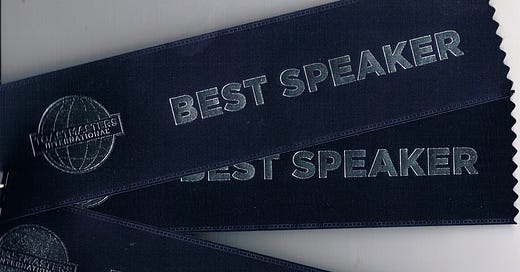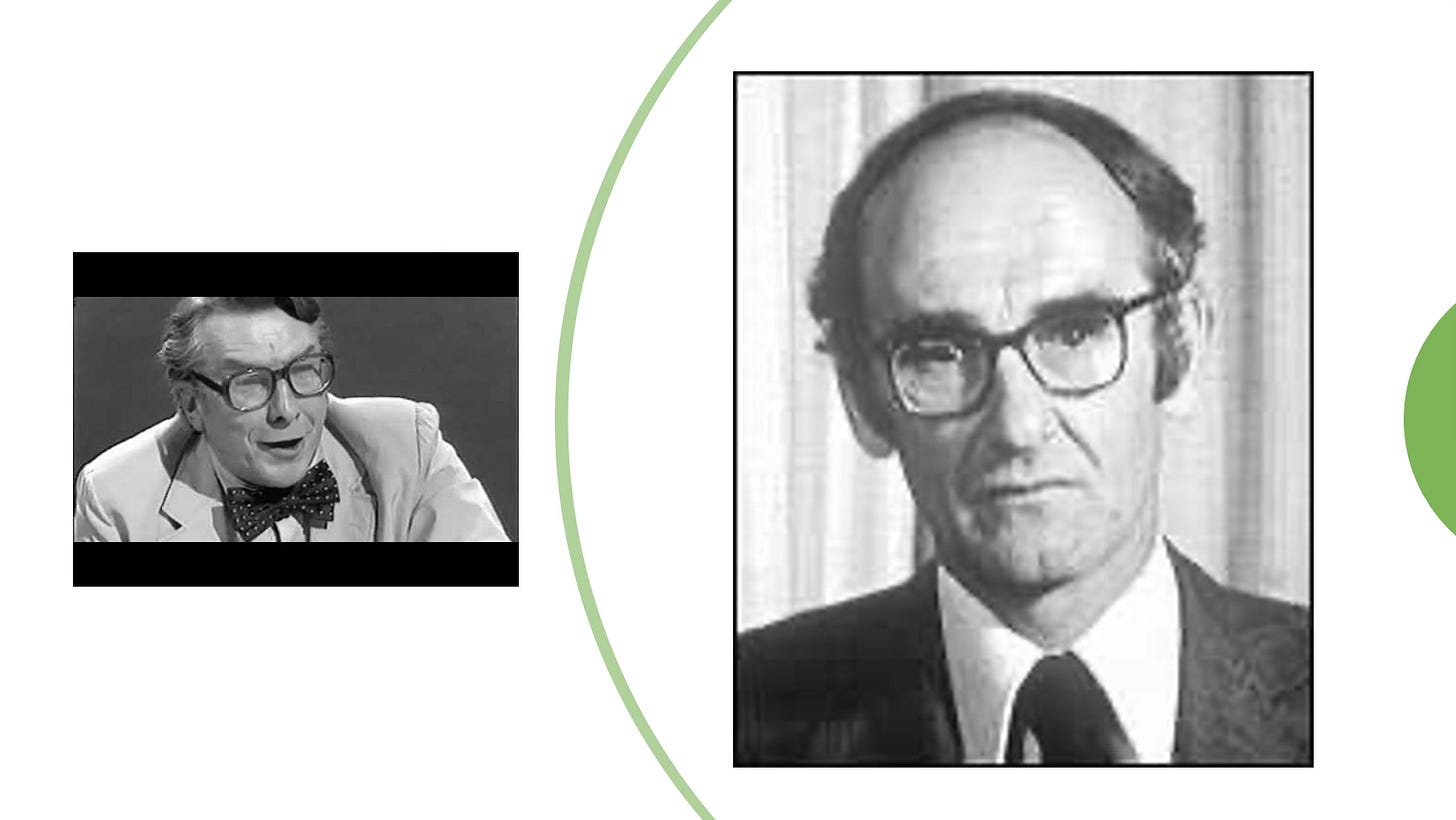Some time ago, I used to be a member of Toastmasters. Established by Ralph Smedley in California in 1929, Toastmasters is an erudite, worldwide organisation that encourages excellence in the skills of public speaking, spontaneous repartee and balanced assessment through project-based programmes involving presentation and feedback, along with administrative skills. I enjoyed my time at Toastmasters, held office and even achieved Competent Communicator and Competent Leadership accolades.
One of the fundamental lessons learned from Toastmasters was balance. If you assessed a colleague’s speech as utter rubbish, then, even if it was, that was not the idea. The idea was to nurture ability so that it became better, with encouragement and praise for the positive aspects of the speech and points for improvement, known as PFIs, where a tip could be offered to remedy the weaker aspects. Rather, a poor speech became a challenge for the evaluator, to tease out a constructive evaluation despite the speech’s awfulness. The reverse could also happen: finding constructive fault with something that was perfect. Because nothing is, in the end.
When you appear before cameras in order to defend your views as a politician or even as a member of the general public, there is an expectation that the questions will be framed politely, if incisively, and that, having made a play as an opinion-holder or policy-maker, you will have the good grace to stand and defend your position.
John Nott was the UK’s defence secretary during the Falklands Conflict in 1982 and, a few months afterwards, became the first in my own experience to simply remove his microphone, stand up and leave an interview half-way through, one that was being conducted by Sir Robin Day, no less.
Was Mr Nott honest or dishonest when he upped and offed? He could obviously have remained seated and parried the awkward questions. The one in point was whether, by standing down at the next election, he was “a transient, here-today and, if I may say so, gone-tomorrow politician,” upon which he gave his indubitable answer: he was a gone-today politician. Nott would later resurrect the phrase in the title of his memoire: Here Today, Gone Tomorrow, which, being a memoire, ought perhaps to have been Gone Yesterday, Here Today, as he is still living.
Left: Robin Day; right: John Nott.
In retrospect, it was an admirably astounding move, but it earned him no plaudits, since the press tend to have more time for those who stand their ground and argue the point. However, in our modern age and 40 years on from Mr Nott’s brazen cowardice, the readiness with which the interviewee is prepared to stand their ground has somewhat hardened. No longer is there the Toastmaster-like sandwich appraisal of the issue (the bread represented by the good points, with the measly filling representing the noxious PFI). No, outright candidness tends more to be the kind of technique deployed today. A US congressman was recently interpellated as he strode forthrightly through some corridor of power, questioned on the hoof, quite literally, about the possibility of a ceasefire in the Gaza Strip (one might now just say Palestine, since the already hot situation in the occupied West Bank is likewise needful of having some of its fire ceased—a sixteen-year-old football player being shot dead in the street by an Israeli defence force sniper, his boots still slung over his shoulder on his way to footie practice).
The American politician tired of the persistent questioning and turned with a riposte even more breath-taking than Mr Nott’s nunc dimittis back in 1982: I want to kill them all. So breath-taking was it that the questioner’s breath was truly taken: “What did you say?” she asked, utterly appalled.
A member of parliament who publicly condones, encourages or endorses one of the most heinous crimes known to mankind ... is he in the right job, or the wrong job? Is he a competent communicator and a competent leader? Or is he simply anti-Muslim?
There is no such thing as being anti-Muslim, and there is no such thing as antisemitic, anti-Hindu, anti-Uyghur, anti-Christian, anti-Protestant or anti-Catholic. None of these things actually exist, none of these sentiments is in the slightest based on any matter of divine faith or belief. None of these sentiments would ever stand up as a Toastmasters speech, and any speech that did vaunt such sentiments would be impossible to evaluate using a sandwich: only technical arguments or, indeed, an outright rejection or praise, would even be feasible.
It is somewhat chilling to realise that Adolf Hitler would have probably received an outstanding ribbon of excellence for his Nuremberg speeches. Of course, Hitler was anti-Jewish, pro-National Socialist. Narendra Modi is anti-Islam, pro-Hindu. Benjamin Netanyahu is anti-Palestinian, pro-Jewish. The Americans are anti-Muslim, pro-Christian and pro-Jewish unless it’s the Jewish left, and then they accuse the Jews of being antisemitic, and then of being anti-them, whoever they are.
That’s in fact who all of these are, along with the Chinese being anti-Uyghur and the Burmese being anti-Rohingya, the Ugandans being anti-gay and so on, and so on: they’re anti-them. And who they are differs to suit who it is that is the us. Ideology is far removed from this level of thinking. Imran Khan sits in a Pakistani prison at the behest of the Pakistani army, but they’re both Muslim. Mr Khan is an anti-corruption politician and is in prison because he told the world that Pakistan is corrupt: for which it was the corrupt Pakistanis who put him behind bars. The Hindu rashtra in India wants to suppress the Muslim culture and, very probably, destroy it, as well as the people who are its adherents, and this is what is also happening in Ukraine, in Israel, and in America, if the Americans but realised it.
Back in the US of A, Ralph Smedley would have likely been outraged at the idea that, to deliver a convincing speech worthy of a favourable evaluation and a ribbon of excellence, one needed to spray one part of the audience with bullets from a machine gun in order to have the remainder shower the speaker with applause. But that is how argumentation proceeds nowadays. The Hindu, the Jew and the Christian are all, at last, united in one cause, which, nota bene, has absolutely nothing to do with tenets related to God and belief in Him. They are sooner united in the cause of suppression and elimination of them.
What remains in question is whether Islam also sits united in this cause and, as the belief model that seems most to be under pressure from the others (Palestine, the UK, Germany, the US, India), it is to be assumed that, if it isn’t actively anti-them now, it’s hard to see why it wouldn’t be.





